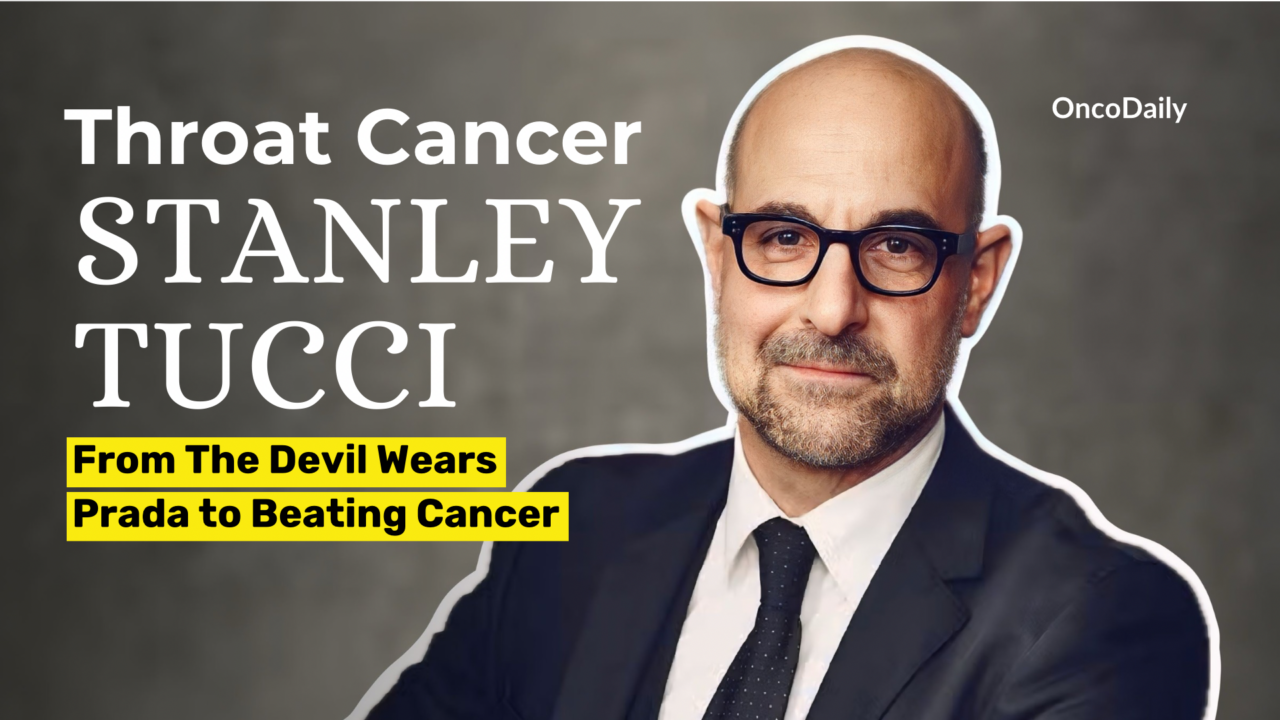Stanley Tucci is an acclaimed actor, filmmaker, and author, known for his roles in films like The Devil Wears Prada and The Lovely Bones. His versatility has earned him critical praise, including an Emmy and a Golden Globe. In 2017, Tucci was diagnosed with throat cancer, a pivotal moment that deeply impacted both his personal life and public image. His treatment, which included radiation and chemotherapy, affected his sense of taste and speech, challenges that altered his relationship with food—a central passion, especially through his culinary shows. Studies show that cancer diagnoses often reshape public personas, making figures like Tucci more relatable, resilient, and inspiring, as they openly confront their health struggles.
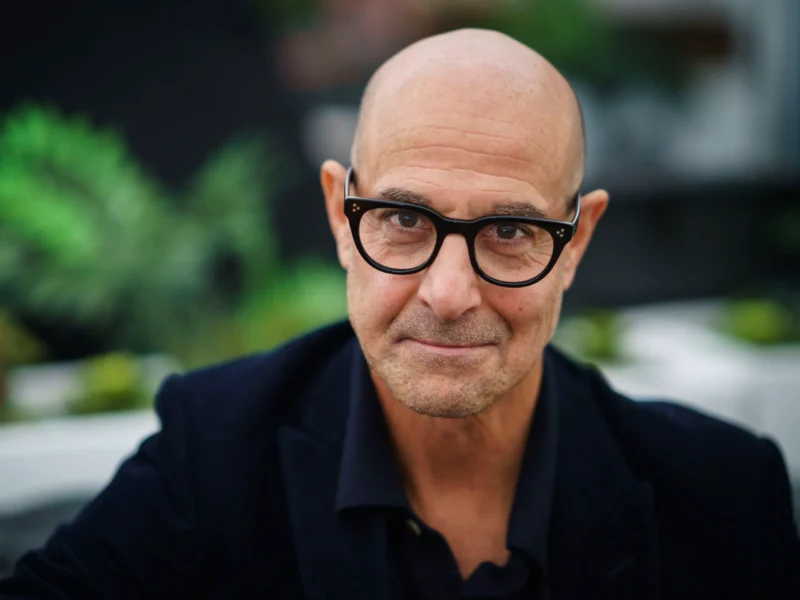
How Did Stanley Tucci Get Diagnosed with Throat Cancer?
Stanley Tucci was diagnosed with throat cancer in 2017 after experiencing symptoms like persistent throat pain and difficulty swallowing. Initially, he dismissed these signs, but worsening symptoms eventually prompted him to seek medical attention. Doctors discovered a tumor at the base of his tongue.
Tucci’s case highlights the importance of early detection, as many head and neck cancers are treatable if caught early. Routine check-ups and paying attention to persistent symptoms are crucial for timely intervention, potentially improving outcomes and reducing treatment intensity
Symptoms
The symptoms that led Stanley Tucci to seek medical help included:
- Persistent throat pain
- Difficulty swallowing (dysphagia)
- A sensation of something stuck in the throat
These symptoms are common in oral and throat cancers, which can also present with:
- Hoarseness or voice changes
- Unexplained weight loss
- Chronic sore throat
- Lumps in the neck or mouth
Often subtle or easily mistaken for conditions like acid reflux or infections, persistent or worsening symptoms should prompt medical evaluation to rule out serious causes, such as cancer.
What Were Stanley Tucci’s Initial Reactions to His Diagnosis?
Stanley Tucci has openly discussed the emotional toll of his throat cancer diagnosis, expressing profound fear and concern for his family. In an interview, he revealed.
“I was terrified. I didn’t want to go through this, and I certainly didn’t want to put my family through it.”
His diagnosis stirred anxieties about his career, especially given his dependence on his voice and sense of taste in acting and culinary endeavors.
Tucci admitted initial reluctance to undergo treatment, saying.
“I’d vowed I’d never do anything like that, because my first wife died of cancer.”
His family, particularly his wife, Felicity Blunt, played a key role in convincing him to proceed with treatment. Their support helped him confront his fears and ultimately shaped his decision to fight the disease.
What was the Prognosis?
Stanley Tucci’s throat cancer prognosis was positive, as his tumor was discovered at an early stage. Throat cancer (specifically at the base of the tongue, as in Tucci’s case) has a generally favorable prognosis if caught early and treated aggressively with radiation and chemotherapy.
According to the American Cancer Society, the 5-year survival rate for cancers of the oropharynx (which includes the base of the tongue) is about 66% across all stages. For localized cancers, the survival rate increases to 84%. Factors like early detection and HPV-positive tumors can further improve outcomes.
Tucci’s decision to undergo treatment, despite initial hesitation, aligned with the importance of prompt intervention in improving cancer survival rates .
What Treatments Did Stanley Tucci Undergo?
Stanley Tucci’s throat cancer treatment involved chemotherapy and radiation, without surgery. The intense treatments caused him to lose his sense of taste and rely on a feeding tube for six months. This was particularly tough for Tucci, given his love for food and his career as an actor, where speaking is essential. Emotionally, he struggled with fears about his future, but his family played a crucial role in supporting him through the process. The treatments left him fatigued and facing challenges that deeply impacted both his personal and professional life.
Chemotherapy and Radiation Therapy
Stanley Tucci’s throat cancer treatment involved several weeks of radiation therapy combined with chemotherapy. This regimen is typical for oral and throat cancers because it effectively targets the tumor and enhances radiation’s effectiveness.
The treatments led to severe side effects, including loss of taste, difficulty swallowing, fatigue, and significant weight loss. Tucci relied on a feeding tube for six months due to swallowing difficulties and experienced changes in his voice, affecting his acting career. These treatments, while effective, significantly impacted his quality of life, requiring considerable adjustments to his daily routines and professional work.
Surgery
Stanley Tucci did not undergo surgery for his throat cancer, focusing instead on chemotherapy and radiation therapy.
For those who do undergo surgery for throat cancer, procedures may involve the removal of part or all of the tumor and affected tissues. According to the American Cancer Society, surgical options are typically considered when tumors are localized and can be safely removed. Recovery from such surgeries can include:
- Speech Difficulties: About 30-40% of patients experience voice changes or speech difficulties after surgery, depending on the extent and location of the surgery.
- Eating Habits: Up to 50% of patients may need temporary feeding tubes post-surgery due to difficulties with swallowing.
These surgeries can significantly impact quality of life, affecting daily functions like speaking and eating. Tucci’s non-surgical treatment plan aimed to manage his cancer while preserving these critical functions.
How Did Stanley Tucci Overcome Throat Cancer?
During his cancer treatment, Stanley Tucci showed remarkable mental and emotional resilience. He managed his physical health by sticking to his treatment plan and adapting his lifestyle. The loss of taste, a significant challenge for a food enthusiast, was mitigated by finding new ways to enjoy food and relying on family support. He also made necessary lifestyle changes, such as using a feeding tube and adjusting his diet. Tucci’s openness about his struggles and commitment to recovery highlighted his strength and adaptability.
Support from Family and Friends
Stanley Tucci’s family played a crucial role in his emotional support during his cancer treatment. His wife, Felicity Blunt, and sister-in-law, Emily Blunt, were particularly instrumental in helping him through this challenging period.
Felicity Blunt was a constant source of strength and encouragement. Tucci has spoken about her unwavering support, saying, “Felicity was amazing. She was there for me every step of the way, helping me stay positive.” Her support extended to managing his care and helping him cope with the treatment’s side effects.
Emily Blunt also provided significant emotional support. In interviews, Tucci has noted that Emily, a fellow actress, offered both comfort and practical help during his recovery. He described their support as “invaluable” and acknowledged how their presence helped him through tough moments.Their combined support network was essential for Tucci, offering both emotional comfort and practical assistance, which greatly contributed to his ability to cope with the intense treatment and its challenges.
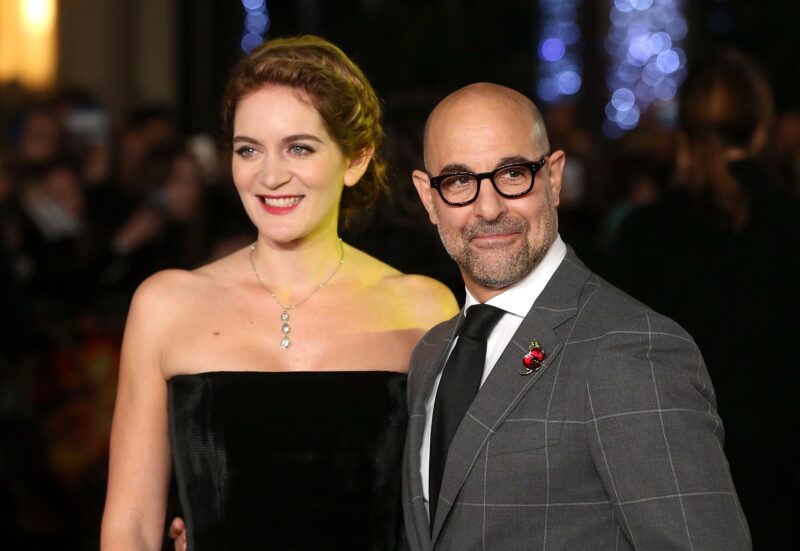
Mental and Emotional Challenges
Stanley Tucci faced significant psychological challenges following his throat cancer diagnosis and treatment. The fear of recurrence was a constant concern, as it is for many cancer patients. Coping with this fear involved a combination of maintaining a positive outlook and relying on strong support from his family.
Tucci worked hard to stay optimistic despite the daunting aspects of his treatment. He acknowledged that this positivity was crucial for his mental health, helping him navigate the difficult days. In interviews, he reflected on how his diagnosis reshaped his perspective on life and health. He noted that the experience deepened his appreciation for life’s everyday moments and reinforced the importance of taking care of one’s health.
Post-diagnosis, Tucci has spoken about how the ordeal made him more mindful of his well-being and encouraged him to embrace life more fully. He described a renewed focus on what truly matters and a greater appreciation for the support of loved ones. His experience has been a reminder of the fragility of health and the value of maintaining a positive mindset through adversity.
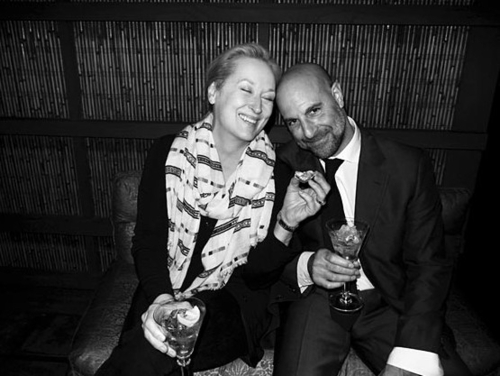
How Did Advocacy and Public Awareness Help?
Stanley Tucci has used his public platform to raise awareness about throat and oral cancers by sharing his personal journey through interviews and public speaking. He has supported cancer foundations and participated in fundraising events. His openness has helped educate the public, highlight the importance of early detection, and inspire others facing similar challenges.
Public Speaking and Advocacy
Stanley Tucci has discussed his cancer journey and advocated for early detection and treatment in several notable public speaking engagements:
- The “Stand Up to Cancer” Campaign: Tucci participated in this campaign, using his platform to emphasize the importance of early detection and support for cancer research.
- Interviews and Talks: He has spoken candidly in interviews on shows like The Tonight Show and Good Morning America, sharing his experiences and encouraging viewers to seek medical help if they have symptoms.
- Fundraising Events: Tucci has been involved in various fundraising efforts, including charity events organized by cancer foundations, where he has shared his story to support research and patient support services.
These contributions have raised awareness about throat cancer, underscoring the need for early detection and supporting public health initiatives.
Collaborations with Health Organizations
Stanley Tucci has actively collaborated with health organizations to raise awareness about oral cancers. Notably, he serves on the advisory board of the Oral Cancer Foundation, where he has played a key role in advocating for the importance of early detection and regular screenings.
His involvement with the Oral Cancer Foundation has had a significant impact on public awareness. By using his platform to discuss his personal experience, Tucci has helped highlight the importance of routine oral cancer screenings and early intervention. His efforts have contributed to increased public awareness and encouraged more people to seek timely medical evaluations, potentially improving health outcomes through early detection.
These collaborations have also supported the foundation’s initiatives to educate the public and fund research, further enhancing efforts to combat oral cancers. Tucci’s advocacy has helped drive the conversation about oral health, underscoring the critical role of proactive screening in cancer prevention.
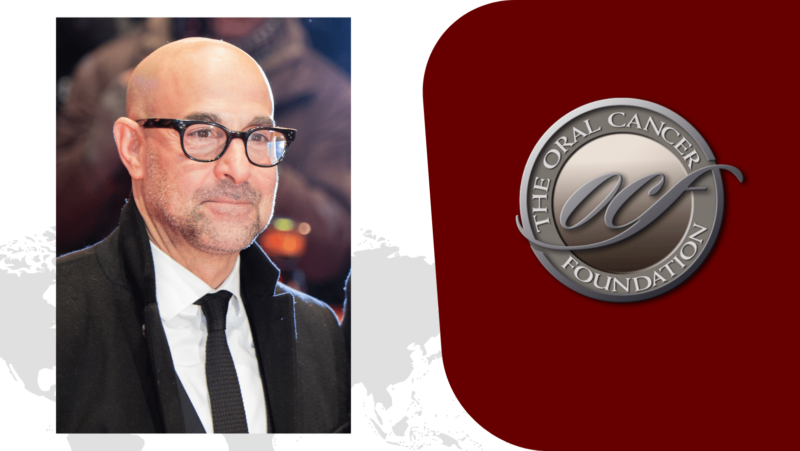
What Is Stanley Tucci’s Life Like After Cancer?
Post-treatment, Stanley Tucci continues to advocate for health issues, particularly oral cancer awareness, through his work with the Oral Cancer Foundation. He has resumed acting and maintains his passion for food, despite some lingering effects from treatment. Tucci balances his career with health commitments, demonstrating resilience and a commitment to both his profession and advocacy efforts.
Continued Advocacy Work
Stanley Tucci remains dedicated to advocating for oral cancer awareness and survivorship through various initiatives:
- Oral Cancer Foundation Advisory Board: Tucci continues to serve on the advisory board, helping to shape public health campaigns and support research.
- Public Appearances: He has made recent appearances on talk shows and at charity events, where he shares his experience and emphasizes the importance of early detection and regular screenings.
- Media Engagement: Tucci frequently discusses his cancer journey in interviews, using his platform to raise awareness and support for oral cancer initiatives.
These efforts reflect his ongoing commitment to improving public understanding of oral cancer and supporting those affected by the disease.
Stanley Tucci’s Public Life After Cancer
Stanley Tucci continues to live his life with resilience and enthusiasm, proving that a cancer diagnosis does not define one’s future. Having overcome throat cancer, he remains active in both his acting career and culinary passions while also using his platform to advocate for cancer awareness. Recently, Tucci was spotted alongside King Charles at a black-tie dinner at Highgrove House, celebrating Italian cuisine and the “slow food” movement. The event, attended by high-profile guests such as Victoria and David Beckham and Dame Helen Mirren, highlighted Tucci’s enduring influence in both the entertainment and food industries. His presence at such prestigious gatherings reaffirms his status as a cultural icon, inspiring many with his perseverance and dedication to the things he loves.
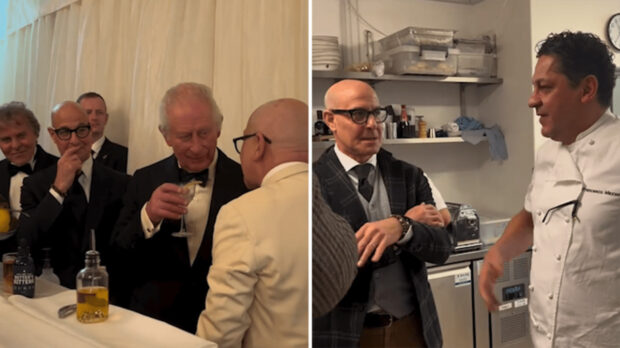
Source: The Sydney Morning Herald
Ongoing Health Challenges
Stanley Tucci continues to face ongoing health challenges from his cancer treatment, including:
- Changes in Taste: He experiences altered taste, which affects his enjoyment of food, a significant issue given his passion for cooking.
- Difficulty Eating: He still encounters challenges with swallowing and eating certain foods.
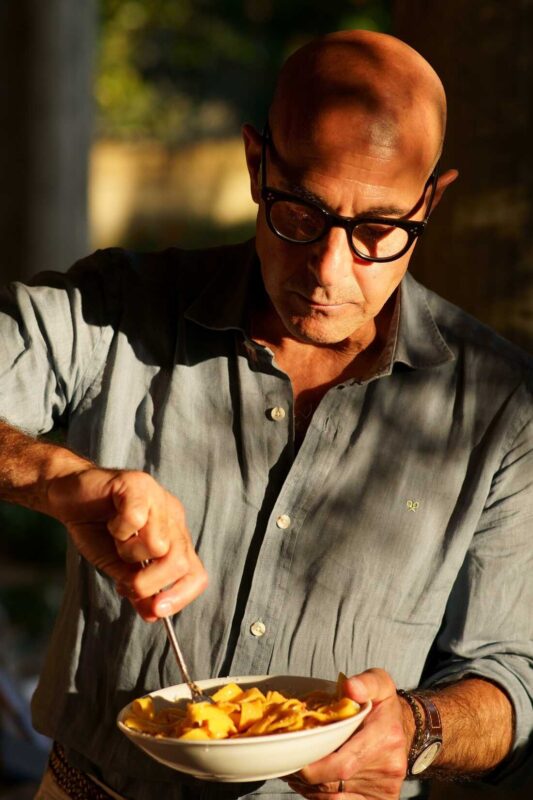
To manage these challenges, Tucci has made several lifestyle adjustments:
- Adapted Cooking: He has modified his cooking techniques and recipes to accommodate his altered taste and dietary needs.
- Balanced Diet: He maintains a balanced diet that meets his nutritional needs while considering his treatment side effects.
- Support Systems: He relies on his family for support and guidance in managing these ongoing issues.
These adjustments help him navigate the lasting effects of his treatment while continuing to engage in his love for food and his acting career.
“I Knew Something Was Wrong”: A Personal Struggle with Thyroid Issues
Stanley Tucci recently shared updates about the long-term effects of his throat cancer treatment during an appearance on David Tennant Does a Podcast With…. Diagnosed in 2017 with a tumor at the base of his tongue, Tucci underwent high-dose radiation and chemotherapy, which successfully put him into remission. However, he revealed that the radiation treatment caused delayed health complications, including “burning out” his thyroid gland.
Tucci recounted experiencing extreme fatigue while filming his BBC series Searching for Italy last year,
“I would be so tired in the afternoon, like completely exhausted by 1 p.m.,”
Blood tests confirmed that his thyroid was non-functioning—a side effect of the radiation therapy he received years ago. Initially attributing the symptoms to stress, doctors later identified elevated cholesterol levels and determined the thyroid damage was caused by the radiation.
“I was like, ‘Something’s wrong with me.’ Finally, I had a blood test, and I was like, ‘I know something’s f–king wrong with me.’ And my thyroid was nonfunctioning.”
To manage this condition, Tucci now takes a synthetic thyroid hormone (Synthroid) and undergoes regular blood tests to fine-tune his treatment. While the medication has improved his condition, he admitted that his energy levels are still not back to normal, saying he often feels fatigued in the afternoons. Despite these challenges, Tucci expressed relief that the issue was not a new diagnosis but rather a known delayed side effect of his cancer treatment.
You Can Also Read In Memory of Chadwick Boseman and His Colon Cancer Battle by OncoDaily
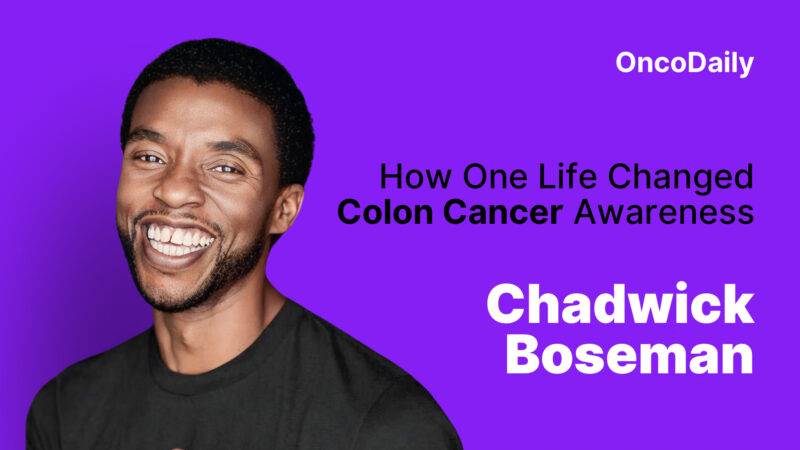
What Causes Throat and Oral Cancers?
Throat and oral cancers are primarily caused by tobacco use, excessive alcohol consumption, and human papillomavirus (HPV) infection. Smoking and heavy drinking significantly increase cancer risk, while HPV, especially HPV-16, is linked to rising rates of throat cancers. Prevention strategies include quitting smoking, moderating alcohol intake, and HPV vaccination. Recent research emphasizes lifestyle changes and vaccination as key measures to reduce cancer risk and improve outcomes.
Genetic Factors
Genetics can influence the risk of developing throat and oral cancers through familial risk factors and genetic predispositions:
- Inherited Syndromes: Conditions like Li-Fraumeni syndrome, due to TP53 gene mutations, significantly raise cancer risk, with a 50% chance by age 30 (National Cancer Institute).
- Familial Risk: A family history of these cancers doubles an individual’s risk (Cancer Epidemiology, Biomarkers & Prevention, 2014).
- Genetic Mutations: Mutations in BRCA2, linked to breast and ovarian cancers, also increase head and neck cancer risk by 1.5 to 2 times (Journal of Clinical Oncology, 2016).
Lifestyle and Environmental Factors
Lifestyle choices and environmental factors, like smoking, alcohol use can significantly contribute to the risk of developing throat and oral cancers:
- Smoking: Tobacco use is the primary risk factor for throat and oral cancers. Smoking increases the risk of oral cancer by up to 10 times compared to non-smokers according to the American Cancer Society. Tobacco smoke contains carcinogens that damage the cells in the mouth and throat.
- Heavy Alcohol Use: Excessive alcohol consumption is another major risk factor. Heavy drinkers are up to 6 times more likely to develop oral cancers compared to non-drinkers according to the National Cancer Institute. Alcohol acts as a solvent, facilitating the absorption of carcinogens from tobacco and other substances.
- Environmental Factors: Exposure to certain chemicals, such as those found in asbestos and some industrial chemicals, can increase cancer risk. For example, prolonged exposure to asbestos has been linked to a higher risk of throat cancer according to the International Agency for Research on Cancer.
You Can Also Watch Dr. Susanne Flach on ctDNA Research in Head and Neck Cancer | ASCO 2024 by Oncodaily
How Can Throat and Oral Cancers Be Prevented?
Preventive measures for throat and oral cancers include regular screenings, HPV vaccination, and lifestyle changes. The American Cancer Society recommends routine oral exams for early detection. The CDC advises HPV vaccination for preteens and young adults. Quitting smoking and limiting alcohol intake are crucial for reducing risk, as emphasized by cancer research organizations.
Regular Screenings and HPV Vaccination
Regular dental and medical check-ups are vital for early detection of oral cancers, with studies showing that routine exams can catch cancers at a more treatable stage. The American Cancer Society reports that early detection improves the 5-year survival rate for oral cancers to around 84% (American Cancer Society).
HPV vaccination is effective in preventing cancers associated with HPV, particularly HPV-16, which is linked to approximately 70% of oropharyngeal cancers (source: National Cancer Institute). The CDC recommends HPV vaccination for preteens aged 11-12, as it significantly reduces the risk of HPV-related throat and oral cancers. Studies show that HPV vaccination can reduce HPV-related cancers by up to 90% (Journal of Clinical Oncology). Combining regular screenings with HPV vaccination can greatly lower the risk of developing oral and throat cancers.
Lifestyle Changes
To reduce the risk of throat and oral cancers, consider these lifestyle changes: According to the American Cancer Society and National Cancer Institute)
- Quit Smoking: Smoking increases oral cancer risk by up to 10 times. Quitting smoking significantly lowers this risk over time.
- Moderate Alcohol Consumption: Heavy drinkers are up to 6 times more likely to develop oral cancers. Limiting alcohol intake to one drink per day for women and two for men can reduce this risk.
- Maintain Good Oral Hygiene: Regular dental check-ups can catch early signs of oral cancer. The American Dental Association emphasizes that good oral hygiene and routine dental exams are crucial for early detection.
Adopting these measures can significantly lower the risk of developing throat and oral cancers and enhance overall health.
Dietary Recommendations
To help prevent throat and oral cancers, consider these dietary recommendations:
- Eat Antioxidant-Rich Foods: Include fruits and vegetables like berries and leafy greens to protect cells (American Institute for Cancer Research).
- Consume Cruciferous Vegetables: Foods like broccoli and cauliflower may help reduce cancer risk (National Cancer Institute).
- Include Vitamin C-Rich Foods: Citrus fruits and peppers support immune health (Journal of the National Cancer Institute).
- Incorporate Whole Grains: Foods like brown rice and quinoa provide fiber and essential nutrients (American Cancer Society).
- Limit Processed Foods and Red Meat: Reducing these can lower cancer risk (World Health Organization).
5 Must-Watch Films Starring Stanley Tucci
- Big Night (1996) – Directed by Tucci, this film about two brothers running an Italian restaurant is highly praised for its portrayal of food and family.
- The Devil Wears Prada (2006) – Tucci plays a memorable role as Nigel, the fashion editor, in this popular film about the fashion industry.
- Julie & Julia (2009) – In this film, Tucci stars as Paul Child, the supportive husband of Julia Child, portrayed by Meryl Streep.
- The Hunger Games series (2012-2015) – Tucci plays Caesar Flickerman, a charismatic TV host, in this successful dystopian film series.
- The Lovely Bones (2009) – Tucci earned critical acclaim for his role as the antagonist in this adaptation of Alice Sebold’s novel.
Written by Aharon Tsaturyan, MD
FAQ
How did Stanley Tucci’s cancer diagnosis impact his sense of taste?
As a side effect of radiation and chemotherapy, Stanley Tucci temporarily lost his sense of taste, which deeply affected his love for food and his culinary pursuits.
Did Stanley Tucci require surgery for his throat cancer?
No, Stanley Tucci did not undergo surgery. His treatment focused on chemotherapy and radiation therapy, which successfully targeted the tumor.
How did Stanley Tucci’s family support him during his cancer treatment?
Stanley Tucci's wife, Felicity Blunt, and sister-in-law, Emily Blunt, played crucial roles in his emotional and physical recovery, providing constant support and encouragement during his treatment.
What side effects did Stanley Tucci experience during his cancer treatment?
Stanley Tucci experienced the loss of taste, difficulty swallowing, significant weight loss, and fatigue. He had to rely on a feeding tube for six months.
How has Stanley Tucci used his experience to raise cancer awareness?
Stanley Tucci has become an advocate for cancer awareness, particularly throat and oral cancers, sharing his story publicly and collaborating with organizations like the Oral Cancer Foundation.
What lifestyle changes did Stanley Tucci make after his cancer diagnosis?
Following his diagnosis and treatment, Stanley Tucci adapted his lifestyle by modifying his diet, finding new ways to enjoy food, and prioritizing his health to manage the lingering effects of his treatment.
What advice has Stanley Tucci given to cancer patients and survivors?
Stanley Tucci emphasizes the importance of early detection, having a strong support system, and maintaining a positive outlook during treatment, while also sharing how his own experience reshaped his perspective on life and health.
What are some of Stanley Tucci’s most famous roles?
Stanley Tucci is known for his roles in The Devil Wears Prada, Julie & Julia, The Hunger Games series, and Big Night.
Has Stanley Tucci won any major awards for his acting?
Yes, Tucci has won several awards, including a Primetime Emmy Award for his role in Winchell and a Golden Globe nomination for The Lovely Bones.


